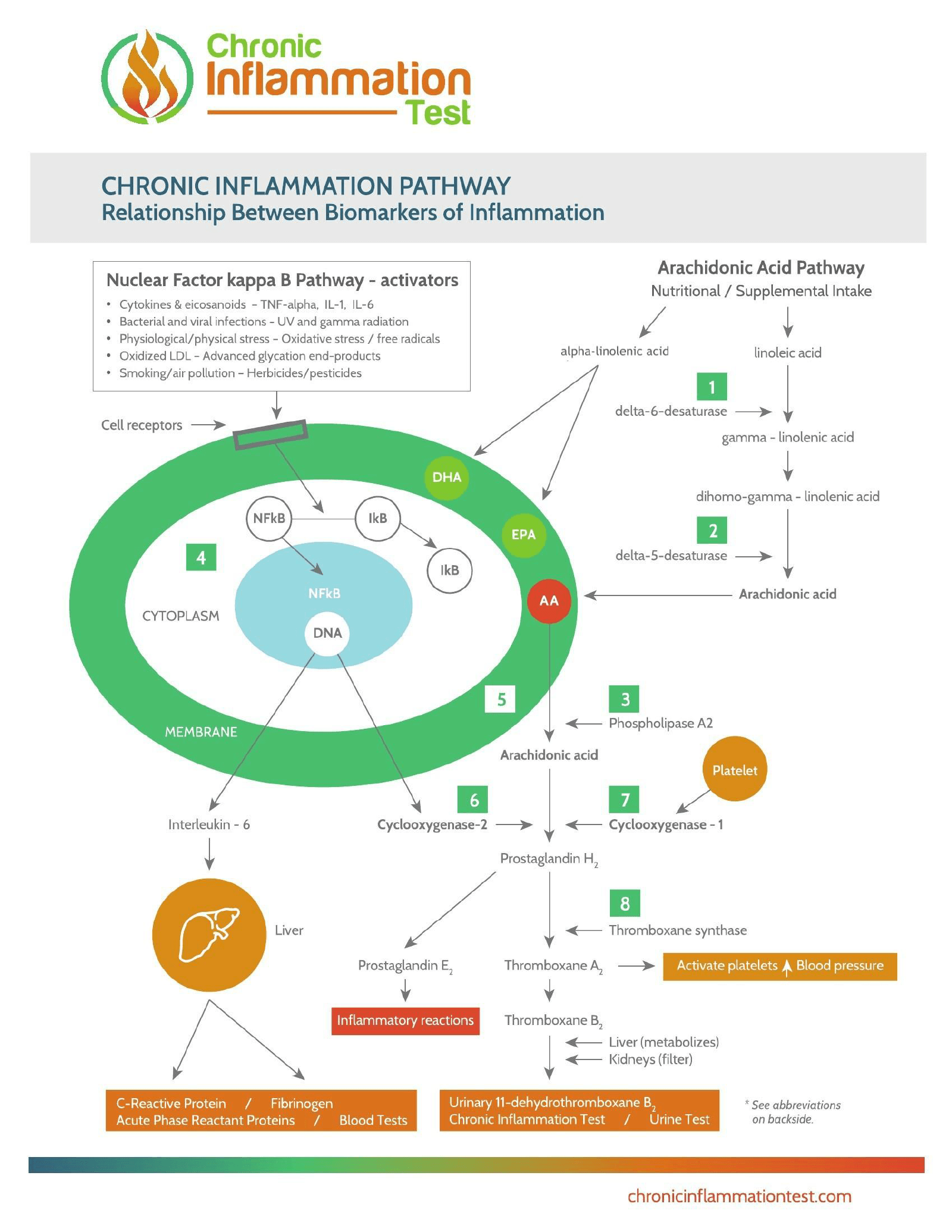About The Test
See how simple it is.


Chronic diseases, such as Alzheimer’s, cancer, dementia, digestive diseases, heart disease, migraines, autoimmune diseases, and accelerated rate of aging are the results of chronic inflammation. It is estimated these are responsible for 70 percent of our country’s healthcare costs. Chronic inflammation on a cellular level is the major cause of chronic diseases.
Chronic inflammation left unchecked is a major factor in “turning on” the chronic disease. Unfortunately, chronic inflammation (also called silent, systemic, or cellular inflammation) most frequently does not have symptoms. The use of appropriate biomarker laboratory tests can help to identify chronic inflammation. (View Schematic Below)

The Chronic Inflammation Test measures the activation of the thromboxane A2 pathway, a major component of the inflammation biochemistry pathway. A Chronic Inflammation Test Score that continues to remain significantly elevated is a good sign you may be at risk.
Many different therapeutic measures have been shown to reduce chronic inflammation, including lifestyle, dietary, and nutritional modifications. Patients are individuals and as such may have different responses to treatment. One size or one therapy does not fit all.
Residual Inflammatory Risk is a term recently reported by clinical studies. If patients continue to have elevated inflammatory markers in spite of therapy, they are at an increased risk of further negative outcomes. To determine if the steps you are taking to reduce inflammation are working, a simple, non-invasive urine test may be a way to learn if you have chronic inflammation.
Chronic inflammation develops unsuspected and unchecked as the result of unhealthy habits. Until recently, there have been few ways to detect it. The Chronic Inflammation Test measures the levels of 11-Dehydro Thromboxane B2, an indirect marker of thromboxane, in the urine.
The association of chronic inflammation and chronic diseases with elevated levels of 11-Dehydro Thromboxane B2 (Chronic Inflammation Test) has been extensively reported in medical literature. For example, clinical studies have demonstrated that increased levels of urinary 11-Dehydro Thromboxane B2 are a predictor of risk for heart attack, stroke, and cardiovascular death.
